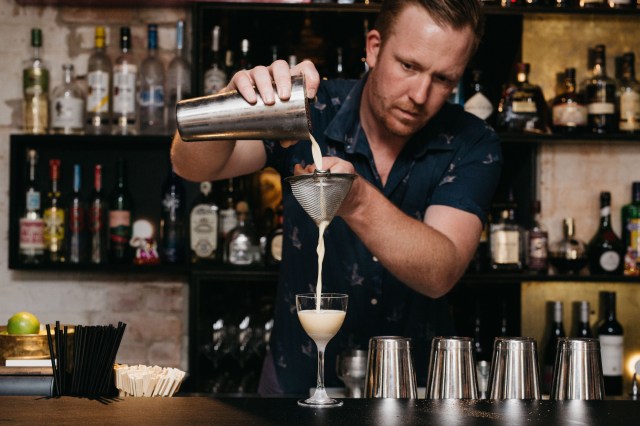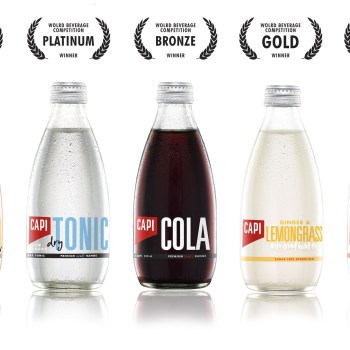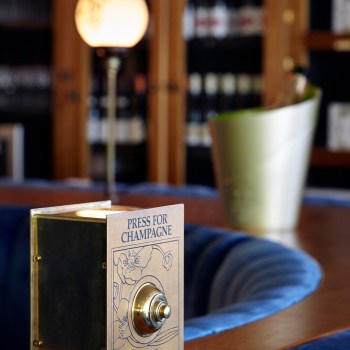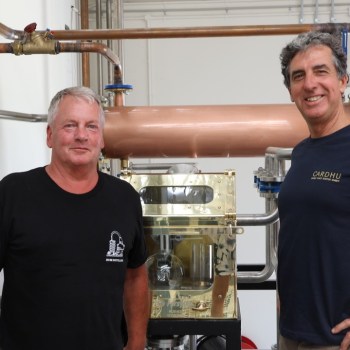In our March/April Issue, Stef Collins caught up with the beverage director of Long Chim, James Connolly, to ask about how he runs three venues across three states and what he has learned along the way to becoming a fixture on the bar scene in Australia. Here is an excerpt from that feature…
According to James Connolly, it was probably his dad who got him his first job in hospitality, when he started out making “gin and tonics with no ice, black and tans – things like that” at local pubs and, even in the Winfield Working Man’s Club, back in the UK.
Connolly didn’t stay in bars though, moving into the pharmaceutical industry before he made the big move to the Antipodes and found himself at a crossroads.
“Because I was here by myself, it was kind of like, well I’ll either get a job in hospitality and hopefully make some friends, or do what I was doing in pharmaceuticals, which was pretty boring,” he says. “So I decided to give hospitality another go and Russell Blaikie at Must Wine Bar very kindly gave me a chance as a barback.
“There a few guys then like Rob Dinnen, of Udaberri, and Zac Nelson, who now works for Domain Wine Shippers, taught me how to make drinks.”
From there it was a self-taught skills journey, picking up techniques here and there. And Connolly honestly can’t remember when he realised he had a knack for cocktails and flavour blending.
“That’s a very good question. I remember the second ever cocktail competition I entered, I won,” he says. “Well the local part anyway. It was the Woodford Reserve Cocktail Derby seven or eight years ago, and I did something odd, like raspberries and white pepper or something similar and it worked, so it evolved from there.”
MASTERING THE SPECIFICS
Connolly is something of a specialist in spirit specific venues, with bars like Enrique’s School for Bullfighting (gin) and El Publico (tequila and mezcal), and Angels’ Cut (rum) under his belt.
“In some ways it’s easier and some ways it’s harder. It’s easier in that you just kind of have one topic to focus on but then your expanded knowledge needs to be even greater.
“When you’re the manager and a customer wants to know something, all the staff are going to turn around to you and, in theory, you should know the answer. Or have a pretty good idea. That’s what I believe anyway. The buck stops with you.”
And Connolly is adamant that it’s not just the “ridiculously weird or stupid questions” you should be able to cover – if you can’t talk at length about each product in the bar, well.
“That’s one of the things to teach younger bartenders – 75 per cent of the information that anyone is ever going to want to know about a product is pretty much written on the label anyway. When you’re there polishing label on the backbar, it’s literally a case of reading it before you put it back.”
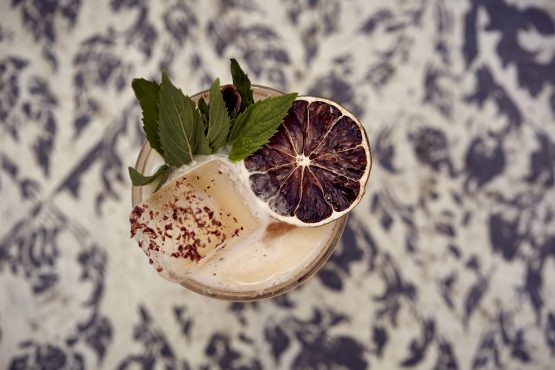
CHECK YOUR EGO
According to Connolly, designing cocktails for a restaurant bar – especially the bar in the restaurant of the Western world’s authority on Thai cuisine, is a little different to creating a straight up cocktail menu in a regular bar.
“I work for one of the best Thai chefs in the world – he is going to love me talking him up like this – so in the same way that a sommelier writes a wine list, you’re focusing on the food and you’re focusing on creating things that will complement and work with the cuisine.
“As much as I like to think people are coming in to drink my drinks, I’m pretty sure they’re coming in to eat David’s food. And I’m just a supporting part of the show.”
Not that he hasn’t had some solid feedback from the foodies on the cocktail menu and how well it pairs with the food.
“We try very hard to make sure the drinks compliment the food and I’ve had a few people say to me that they could just drink the cocktails. Usually they’ll start with a cocktail and go to wine but I’ve had a few people say that they could drink the cocktails the whole way through the meal with the food as well. Which is a great compliment.”
CROSSING STATE LINES
With three venues in different states, there are a few peculiarities to making sure that the ‘brand’ of Long Chim is always consistent, as well as making sure all the staff are communicating with Connolly. “In Melbourne we’ve worked very closely with the Crown beverage team to ensure that it’s the same as all the other Long Chims,” he says. “Sydney, once again, every so often I get to go back there but I’m in constant contact with the team so that we can address any problems that may arise. And just make sure that we’re all following the same recipes.
“Actually, I had a local food personality in last night and I made him a drink the other day, and he got one of the guys to make him the same drink and he said that it was a compliment to me, the fact that the drink that the other bartender made tasted exactly the same way as it did when I made it. So hopefully that works across the whole country.”
Connolly explains that he trains his staff like one would kitchen staff – it’s all about tasting everything.
“Constantly taste stuff as you’re making it through the processes. That’s probably the best way to get to know the products that we’re putting out.”
COMMUNICATE!
“I know it’s a cliché – but any good business runs on communication,” says Connolly.
And that’s not just end of day reporting or weekly check-ins – though those are important too.
“They know that my phone is always on and that they can contact me at any point if they need to,” he says. “Melbourne is a fairly new restaurant but it’s 100 per cent open communication with them if they need anything and vice versa.”
STAFF: PERSONALITY VS SKILL
“I generally go through the resumes and I filter out the ones that I think will work then I tend to get them down and interview them, and after that I ask them to jump behind the bar and make me a couple of drinks,” says Connolly.
It’s usually a classic, like a Daiquiri to prove that they understand balance, then he’ll get them to make a drink of their choice, pour a beer from a tap and discuss a glass of wine. That gives him a good idea of their skills.
“We have to look at people for their potential, and if they have worked in good places then you can hope that they would be adaptable to working in another good place, with slightly different guidelines,” he says.
Turns out, Connolly doesn’t really subscribe to the cliché of employing personality and teaching skills – but as he jokingly points out, he thinks he’s, “probably not the best person to be talking about personality”, though he assures us he can be quite charming if he needs to be.
“Obviously personality helps, but the hardest thing to find is people that care,” he clarifies. “That’s the number one quality that I would hope for. People that care what they do and about the job that they’re doing.”
